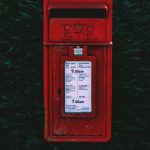Title: Understanding Business Expense Deduction for Soundproofing Equipment Used for a Neighbour’s Child
Introduction
Navigating the complexities of business expense deductions can be challenging, particularly when it involves mitigating external factors that impact your work environment. Recently, a query was posed regarding whether a portable muting device or soundproof enclosure purchased for a neighbor’s child playing a trumpet can be claimed as a business expense. This article explores the key considerations and best practices for handling such situations within the framework of tax compliance and financial management.
Scenario Overview
Imagine working from a home office—potentially a bedroom—where frequent trumpet practice by a neighbor’s child disrupts concentration and productivity. Despite attempts to reposition the child or implement some soundproofing measures, the noise persists. In response, the neighbor considers investing in specialized muting equipment, such as a soundproofed practice box or sound booth, designed to significantly reduce musical noise. The question arises: can the cost of this equipment be considered a deductible business expense, even though it benefits someone else’s household?
Key Considerations for Expense Deduction
- Direct Impact on Business Operations
-
The primary criterion for deducting expenses is a direct connection to your business activities. In this case, if the noise disturbance hampers your ability to work efficiently, it suggests a potential link.
-
Purpose and Necessity of Equipment
-
The muting devices in question are intended to create a quieter environment conducive to work calls, meetings, and concentration. Their purpose aligns with maintaining a suitable home office setting.
-
Ownership and Use of Equipment
-
Typically, to claim an expense, you should be the owner and primary user of the equipment. Purchasing equipment for someone else raises questions about deductibility unless you have documented arrangements or agreements.
-
Nature of the Expense
-
If the equipment is used exclusively or primarily for your business environment, its cost may qualify as a legitimate business expense. Conversely, items purchased solely for personal benefit might not qualify.
-
Tax Regulations and Consultation
- Tax laws vary by jurisdiction. Many tax authorities require that expenses be necessary and directly related to earning income. Consulting a tax professional is advisable to ensure compliance.
Practical Recommendations
- Document the Impact: Keep records demonstrating how noise interruption affects your work and how the equipment mitigates this issue.
- Clarify Ownership: If considering purchasing the equipment, establish whether it will be owned and used exclusively for your business purposes.
- Consider Alternative Solutions:









